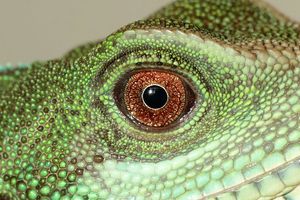
It can be difficult to gauge signs of illness in reptiles, often times signs may not be noted until pets are very sick. Early identification of illness may lead to better health outcomes, so it’s important to stay diligent and recognize signs of illness. If you are ever unsure if something is abnormal and your pet should be seen, it never hurts to call your veterinary hospital.
This is an excellent question! Typically any veterinarian that sees exotic animals should see reptiles, but it’s never a bad idea to call and clarify. Alternatively, you can bring your reptile to exotic specialty hospitals or use the find a veterinarian tool on the Association of Reptile and Amphibian Veterinarians website (arav.org). Although there are very few, there are specialists specifically in reptile and amphibian medicine and surgery- these are indicated by special credentials identifying them as diplomates of the American Board of Veterinary Practitioners (ABVP) or American College of Zoological Medicine (ACZM).
Copyright © All Rights Reserved
